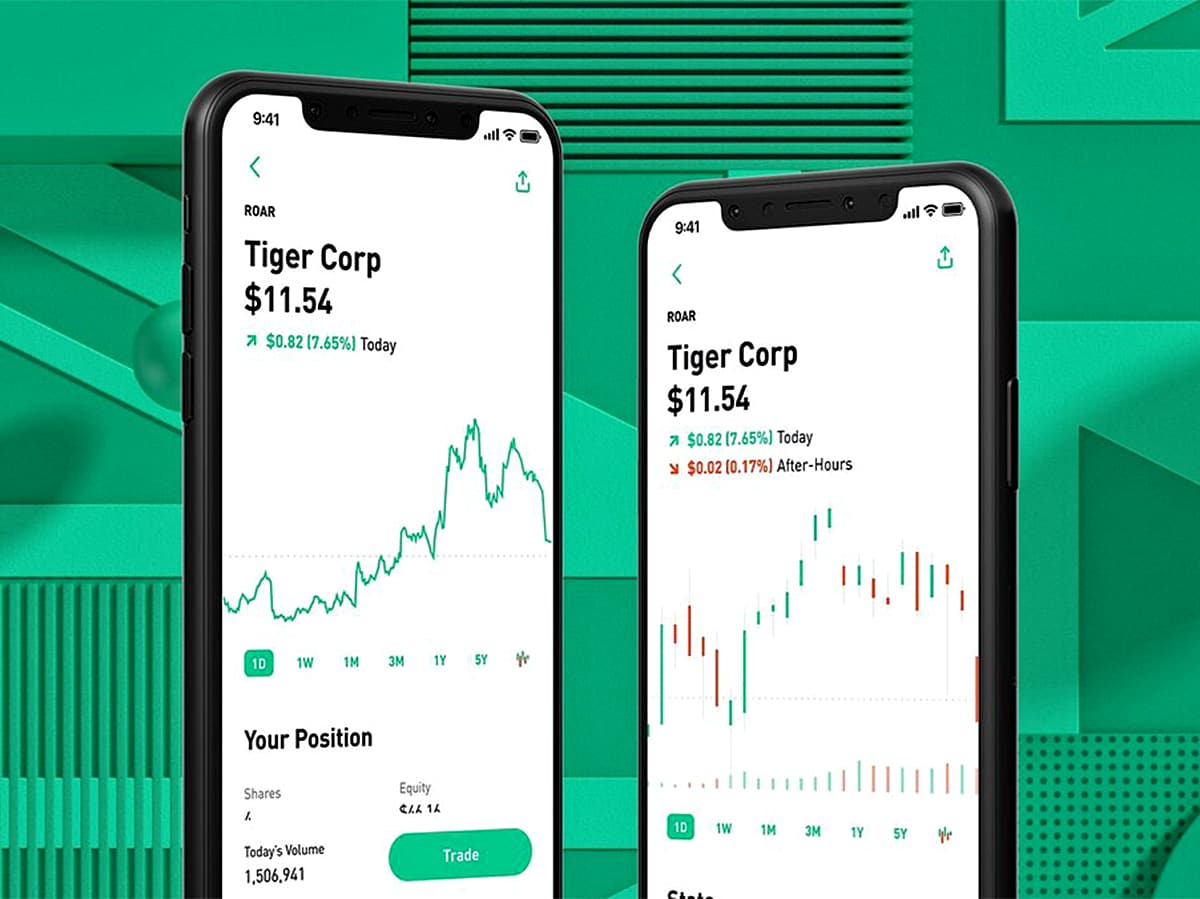Robinhood has been in the limelight since an outbreak of meme trading earlier this year led it to freeze trades on certain stocks.
With three new appointments to its board being announced, Robinhood is finalising preparations for its much-anticipated IPO.
Confidential papers for the float were filed with the Securities and Exchange Commission (SEC) in March this year, and analysts believe Robinhood could be valued at up to $40bn at its debut. A September 2020 financing round valued Robinhood at $11.7bn.
The controversy generated by the meme stock craze was good for Robinhood’s business. Three million new customers joined in January alone, bringing total user numbers up to 13 million. Analysis from SimilarWeb and JMP Securities found that the app had been downloaded 600,000 times in a single day late in the month.
Then, in March, Fortune reported that Robinhood’s IPO could even value the company at $50bn, which would make it one of 2021’s largest debuts to date.
Robinhood’s IPO is expected to take place on the Nasdaq but, given the confidential prospectus, little is known regarding pricing and the number of shares to be issued.
Expertise on board
Robinhood attracted the ire of its retail investor base, not to mention a flurry of lawsuits, when it restricted new purchases of GameStop [GME] back in January. The decision was partly due to pressure from regulators concerned about the volatility of the meme stock.
Some of these wrangles, such as that brought by regulators in the US State of Massachusetts accusing Robinhood of encouraging risky trades by inexperienced investors, are still ongoing. It is no surprise that one of Robinhood’s new board members brings deep experience in SEC compliance to the table.
It is no surprise that one of Robinhood's new board members brings deep experience in SEC compliance to the table
Paula Loop, assurance partner and leader at PwC, heads up the consultancy’s Governance Insights Center, having previously held the post of New York Metro regional assurance leader. A certified public accountant, Loop sits on the Foundation Board of the Sustainability Accounting Standards Board (SASB) and will become Robinhood’s first female board member when her appointment takes effect on 17 June.
Robinhood’s other two appointments are effective immediately. Robert Zoellick, senior fellow of the Belfer Center for Science and International Affairs at Harvard University and a principal at the Brunswick Group, is also a former president of the World Bank Group and has held several senior advisory positions in the US Trade and Treasury departments.
Jon Rubinstein, senior advisor, PDT Partners, is the third new member of Robinhood’s board. A former general manager at Apple [AAPL] and current lead director on the Amazon [AMZN] board, Rubinstein is expected to bring extensive mainstream tech and investment knowhow to Robinhood.
The three appointments take the Robinhood board up to seven members, with co-founders Vlad Tenev and Baiju Bhatt occupying the pre-existing places along with independent directors Jan Hammer and Scott Sandell occupying the pre-existing places.
Rich listings?
Should the upper valuation estimate of $50bn materialise, Robinhood’s IPO will be 2021’s second-largest to date. Only Korean ecommerce platform Coupang [CPNG] will have fetched a greater valuation through a traditional IPO, with its 11 March debut on the NYSE valuing the company at $60bn, according to CNBC and reported by Crunchbase.
Other routes to public listings have yielded higher valuations. Coinbase [COIN] debuted on the Nasdaq on 14 April through a direct listing, fetching a valuation of $86bn. However, the cryptocurrency’s stock has slipped significantly since hitting $429.54 on its first day of trading, closing 8 June at $231.45.
$86 billion
Coinbase's initial valuation
Approaching the midway point of the year, the signs are that 2021’s IPO market is lagging last year’s, which saw Palantir [PLTR], Snowflake [SNOW], Doordash [DASH] and Airbnb [ABNB] all debut with market caps above $60bn. This year has already seen its fair share of debut flops. Besides Coinbase, Deliveroo’s [ROO.L] IPO saw its stock crash spectacularly enough to be dubbed London’s worst IPO in history.
The Renaissance IPO ETF [IPO], from Renaissance Capital, tracks the performance of companies that have debuted within the last two years. It is down 2.20% in 2021 to date, despite gains of 62.40% over the past 12 months and 12.65% over the last month (as of 8 June’s close).
In a listing landscape that is increasingly dominated by special-purpose acquisition companies (SPACs) bringing companies to market earlier than conventional listings, the success or failure of Robinhood’s IPO could become an acid test of faith in the traditional approach.
Disclaimer Past performance is not a reliable indicator of future results.
CMC Markets is an execution-only service provider. The material (whether or not it states any opinions) is for general information purposes only, and does not take into account your personal circumstances or objectives. Nothing in this material is (or should be considered to be) financial, investment or other advice on which reliance should be placed. No opinion given in the material constitutes a recommendation by CMC Markets or the author that any particular investment, security, transaction or investment strategy is suitable for any specific person.
The material has not been prepared in accordance with legal requirements designed to promote the independence of investment research. Although we are not specifically prevented from dealing before providing this material, we do not seek to take advantage of the material prior to its dissemination.
CMC Markets does not endorse or offer opinion on the trading strategies used by the author. Their trading strategies do not guarantee any return and CMC Markets shall not be held responsible for any loss that you may incur, either directly or indirectly, arising from any investment based on any information contained herein.
*Tax treatment depends on individual circumstances and can change or may differ in a jurisdiction other than the UK.
Continue reading for FREE
- Includes free newsletter updates, unsubscribe anytime. Privacy policy





